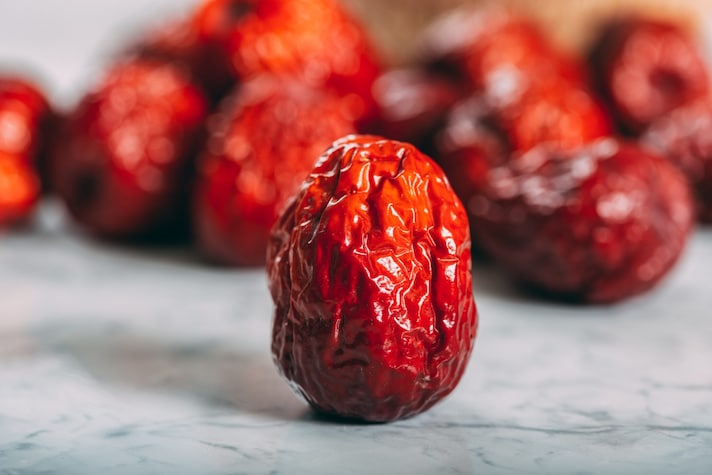4 Health Benefits Of The Jujube Fruit And When They Shouldn’t Be Consumed
The Jujube fruit has many nutritional benefits and uses, but many in the U.S. don’t know enough about it to go looking for it in stores. Not only is the unique fruit delicious, it provides numerous health benefits. However, nutrition experts say that the jujube fruit aren't always fit for consumption. Read ahead to learn why.
;Resize,width=742;)
The jujube fruit is also known as red or Chinese date, and while it has become popular everywhere in the world, it is native to South Asia. The jujube fruit is a small round fruit with a pit that contains a seed.
They grow on large flowering shrubs or trees, and when they become ripe, they turn dark red or purple and may take on a slightly wrinkled appearance. They have a sweet taste and chewy texture, so they are often dried and used in candles and desserts in some parts of Asia where they can be commonly found.
Benefits of the Jujube fruit

In alternative medicine, they are mostly used to improve sleep quality and reduce anxiety, but they are also used to treat conditions like insomnia and anxiety. According to some test-tube and animal studies, the jujube fruit offers great benefits for the human nervous system, immunity, and digestion.
Some of these benefits include:
1. They are rich in antioxidants
They primarily contain flavonoids, polysaccharides, and triterpenic acids. They are also very rich in vitamin C, which acts as an antioxidant too.
2. They may be able to improve sleep and brain function
In alternative medicine, jujube fruits are used to improve sleep quality and brain function. Research says their antioxidants may be the reason for this.

3. They may boost immunity and resist cancerous cells
Jujube might be able to fight the growth of cancer cells and boost immunity, according to some test-tube studies. This is because they contain polysaccharides that can fend off harmful cells and reduce inflammation.
4. Maybe able to improve digestion
Jujube fruits contain high fibers, which may be able to improve digestion. It also helps to strengthen the lining of the stomach and intestines, which reduces your risk of ulcer damage and injury.
Demerits of the jujube fruit

The jujube fruit is safe for most people, but if you’re taking antidepressant pills or other serotonin-norepinephrine reuptake inhibitors, it's recommended you avoid taking jujube fruits because they may interact with the drugs.
They have a lot of antioxidants, but this just calls for more research on their benefits. Avoid the fruit if you take anti-seizure medicines or venlafaxine.
;Resize,width=767;)
;Resize,width=712;)
;Resize,width=712;)
;Resize,width=712;)
